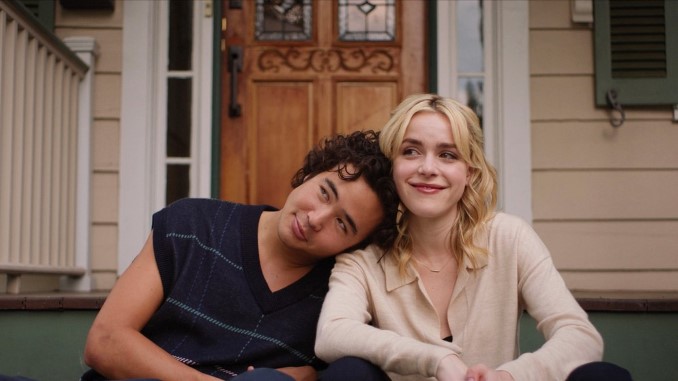Sweethearts Is the Thanksgiving Leftovers Meal of Aimless Rom-Coms

There are times when the specificity of a film premise is the hook that draws you in: The hope that by zeroing in on a specific aspect of a familiar moment, the writer-director can tap into some universal experience that hasn’t already been well articulated a hundred times before. Looking at Max’s new young adult romantic comedy Sweethearts, this was the pitch that caught my eye–it’s a comedy about breakups, taking place primarily during one of the most awkward nights of the year for a new college student: The evening before Thanksgiving, when you meet up with all your high school friends in your home town and realize that your relationships are never going to be the same as they were before.
This particular experience feels almost like a right of passage to your stock-standard Midwestern college student attending a big state university, and indeed Sweethearts is set in suburban Ohio, though it hardly evokes the Midwestern mentality in earnest. It’s a night of the year that has both humor and pathos waiting to be mined from it; I’m confident of that. There’s a deep, inherent strangeness to being home from college after the first few months of adapting to new friends and new freedoms, thrusting you suddenly back into interaction with the same collection of people who you spent your high school years palling around with. On this night, familiar things and people take on a tone of alien weirdness almost immediately as you realize–with the aid of booze, traditionally–that the slightest bit of distance from them has recast the nature of each relationship. People drift apart. High school romantic relationships wither. Everyone turns their eyes toward the future.
-

-

-

-

-

-

-

-

-

-

-

-

-

-

-

-

-

-

-

-

-

-

-

-

-

-

-

-

-

-

-

-

-

-

-

-

-

-

-

-








































